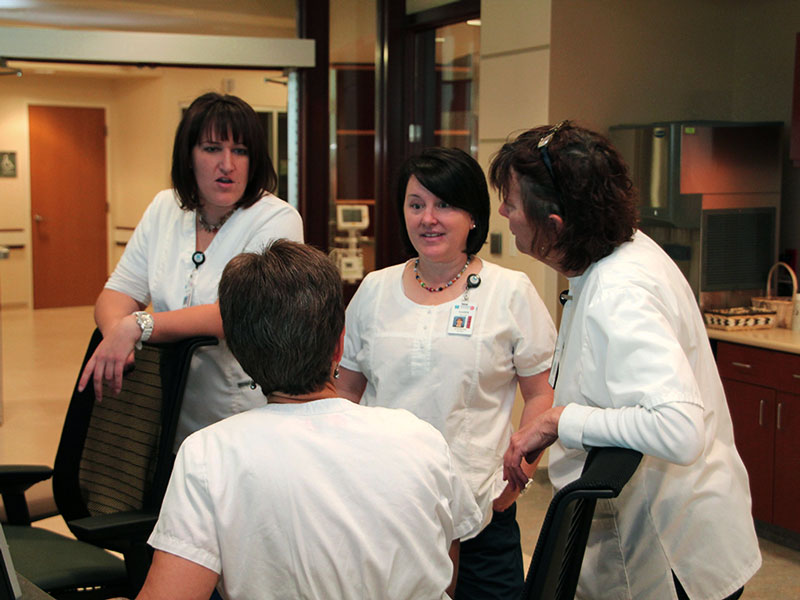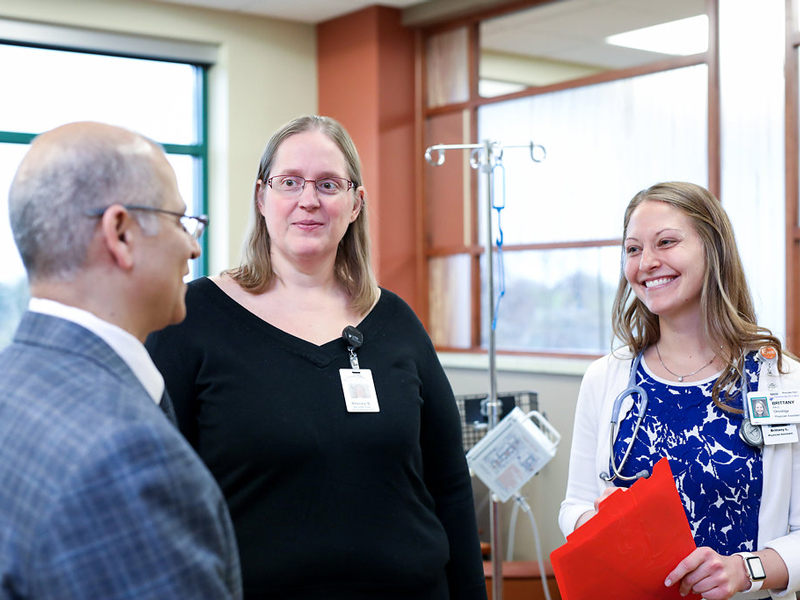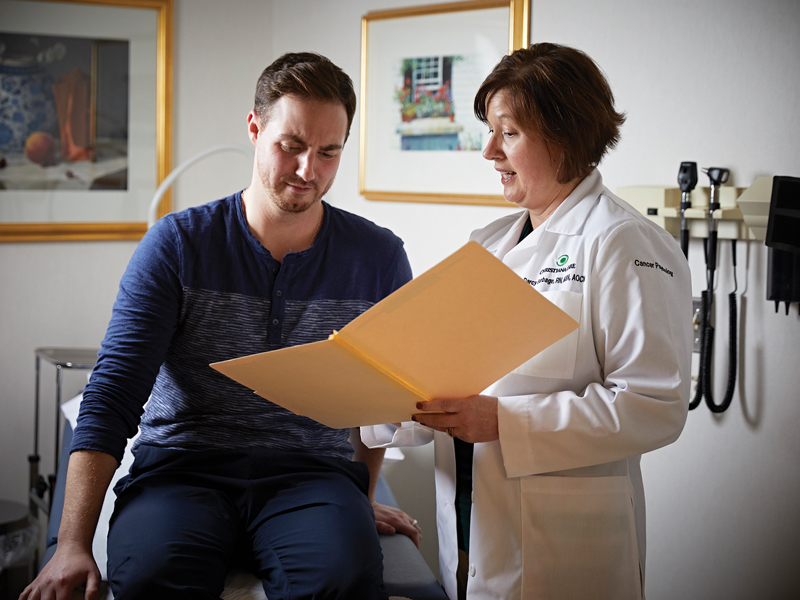Dendritic Cell Vaccine Uses Immune System to Fight NSCLC

A new study testing a dendritic cell vaccine for the first time in humans to treat non-small cell lung cancer (NSCLC) has shown that it successfully amplifies the immune system to boost the effectiveness of anti-PD-1 immunotherapies against the cancer. The findings were published in Clinical Cancer Research.
The Case of the Comfort Care Concerns

Phil is a 63-year-old man who is admitted to the inpatient oncology unit for severe pain resulting from metastatic small cell lung cancer. His wife and two daughters are at his bedside. Earlier in the day, the medical oncologist discussed additional treatment options or hospice care. Phil decided on comfort care with the hope of getting his pain managed and going home on hospice.
Nursing Is One of America’s Most Dangerous Professions; Uninsured Rates Fall to 8.8%; Senate Authorizes Five-Year CHIP Deal

Nursing isn’t always just about treating illness. At times, patients are unruly, combative, and even downright dangerous to staff. Nurses are the ones standing front and center when an upset patient erupts, and it happens more often than the uninitiated public may think. A recent article in the Washington Post, catalogs some of the harrowing violence nurses have seen in the line of duty, dubbing it one of the most dangerous professions in the United States. Patients aren’t always the sole source of danger either—as illustrated by the recent assault of a Utah nurse, Alex Wubbels, by a Salt Lake City police detective.
- Read more about Nursing Is One of America’s Most Dangerous Professions; Uninsured Rates Fall to 8.8%; Senate Authorizes Five-Year CHIP Deal
- Add new comment
FDA Approves Lower Dose of Cabazitaxel for Prostate Cancer

On September 14, 2017, the U.S. Food and Drug Administration (FDA) approved a lower dose of cabazitaxel (20 mg/m2 every 3 weeks) in combination with prednisone for the treatment of patients with metastatic castration-resistant prostate cancer previously treated with a docetaxel-containing treatment regimen. Cabazitaxel (25 mg/m2 every 3 weeks) was approved for this indication in 2010.
FDA Grants Accelerated Approval to Copanlisib for Relapsed Follicular Lymphoma

On September 14, 2017, the U.S. Food and Drug Administration (FDA) granted accelerated approval to copanlisib for the treatment of adult patients with relapsed follicular lymphoma who have received at least two prior systemic therapies.
- Read more about FDA Grants Accelerated Approval to Copanlisib for Relapsed Follicular Lymphoma
- Add new comment
FDA Approves First Biosimilar for Cancer Treatment

On September 14, 2017, the U.S. Food and Drug Administration (FDA) approved Mvasi (bevacizumab-awwb, Amgen Inc.) as a biosimilar to Avastin (bevacizumab, Genentech Inc.). Mvasi is the first biosimilar approved in the U.S. for the treatment of cancer.
Exercise's Role in Cancer Care

Until the 1980s, the value of exercise was unrecognized in the oncology setting. It was widely believed that patients with cancer undergoing cytotoxic treatments needed to rest and avoid exercise. But a 1989 study conducted by Winningham and Mac Vicar, both oncology nurses at the Ohio State University, dispelled this notion. The trial involved 45 women receiving adjuvant chemotherapy for operable breast cancer and showed that a 10-week interval-based, aerobic exercise was not only safe but also significantly improved body composition, aerobic capacity, and patient-reported nausea.
Overcome Barriers to Your Clinical Nurse Specialist Practice

As an oncology clinical nurse specialist (CNS), you may find yourself answering over and over the question of, “What is it you do?” In many instances, it is a broader role then most may realize, and you wear several hats. As you explain to other oncology staff what a CNS does, focus on the three spheres of influence.
Creating an Effective CV and Resume to Land the Job

Heather Costa, PHR, SHRM-CP, a nurse recruiter, and Precious Suchora Farroni, PHR, SHRMCP, an advanced practice recruiter, both from Ohio State University Wexner Medical Center, helped nurse attendees differentiate between a resume and a curriculum vitae (CV), offered tips to make both stand out, and provided tips to help boost professional profiles.
Nontraditional Roles in Oncology Nursing

The nursing profession has long been an incubator of innovation. Nurses are continually blazing new trails in clinical care, research, and administration, and the landscape is no different in the specialty of oncology. This article provides an overview of three non-traditional roles in oncology nursing: nurse navigation, nursing informatics, and research nursing.





